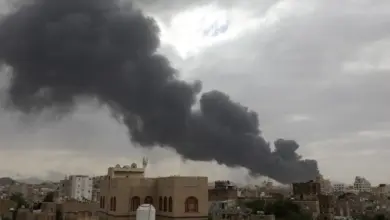Sanaa — Youth groups leading protests to oust Yemen's long-ruling President Ali Abdullah Saleh called on Gulf Arab states Saturday to withdraw a plan which has failed so far to ease him from power.
Yemen's main opposition said Friday the deal, proposed by the Gulf Cooperation Council (GCC) to end months of unrest, had been modified to allow Saleh to sign as party leader rather than president, a condition that nearly derailed the deal last week.
"We call on the leaders of the Gulf Cooperation Council to stop any initiatives that result in alienating the Yemeni people," the groups, under the banner Youth Revolution, said.
"We call on the United States, the European Union and the permanent Security Council members to assume their moral responsibility and stop…meddling directed against the will of the Yemeni people to ensure freedom and democracy," the statement signed by the Organizational Committee of the Popular Youth Revolution said.
The plan requires the Yemeni leader, until recently backed by Saudi Arabia and the United States as a bulwark against Al-Qaeda and regional instability, to resign 30 days after signing.
Critics saw Saleh's refusal to sign as president as a clear sign that the shrewd political survivor had no intention of stepping down quickly.
Skeptical opposition leaders said Friday it appeared the GCC had acceded to demands by the ruling party.
Gulf Arab states including Saudi Arabia, Yemen's neighbor, are eager to see peace return to Yemen, a poor state struggling to deal with internal rebellion and home to Al-Qaeda's active Arabian Peninsula branch.
Many worry that Yemen that could quickly spiral into further violence — half of its 23 million people own a gun.
Protests for and against Saleh attracted large crowds in the capital Friday. In cities throughout Yemen, anti-Saleh protesters were out in force.
Saleh has defied three months of protests and Friday called his opponents "outlaws" and "forces of terror."
UN Secretary General Ban Ki-moon vowed Friday to continue pressing for change in Yemen, but sounded a note of exasperation at the slow progress.
"It is unfortunate and frustrating that all these agreements which were presented by the GCC and the international community have not been fully accepted and agreed and implemented."



